
Bees are the unsung heroes of the agricultural world. They quietly pollinate crops, ensuring that we have a steady supply of fruits, vegetables, and even the coffee beans that bring us to life in the morning. Yet, around the world, bees are in trouble. Misinformation, habitat loss and irresponsible practices threaten these vital insects. For one South African woman, Elizabeth Lamond, a love of bees, a corporate background, and a determination to protect her country’s apiculture and agriculture ignited a passion for creating change.
“As a child we lived in Phalaborwa and my father had a few hives of bees. His boxes were on my grandparents’ farm out in Bushbuckridge, a healthy foraging area way back in the day. Hence bee farming has always been in my DNA. I have spent a large part of my life in the corporate world involved with strategic financial planning,” says Lamond. Some 17 years ago, Lamond bought a small piece of land in the Marquard area of the Free State. While the farm, Susannaspos, was too small to make a sustainable living from any conventional farming practices, it was big enough to start her own beekeeping business and produce her raw honey, yoUBee Honey. “I did a course in beekeeping in Johannesburg a few years ago and then just got going,” she says.
STEADILY GAINING GROUND
She says women have steadily been gaining ground in the apiculture industry, and “although in the minority, have staked their claim to fame”.
This story is from the {{IssueName}} edition of {{MagazineName}}.
Start your 7-day Magzter GOLD free trial to access thousands of curated premium stories, and 9,000+ magazines and newspapers.
Already a subscriber ? Sign In
This story is from the {{IssueName}} edition of {{MagazineName}}.
Start your 7-day Magzter GOLD free trial to access thousands of curated premium stories, and 9,000+ magazines and newspapers.
Already a subscriber? Sign In

Agripreneur wins top award for butternut coffee
Bloemfontein-based agripreneur Chantelle de Bruyn has achieved global recognition.
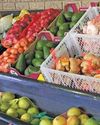
Final fresh produce inquiry pins low level of transformation on farming environment
The Competition Commission released its final report on the Fresh Produce Market Inquiry in mid-January, maintaining that transformation in the industry was being impeded by a lack of support for emerging farmers.

Illegal fishing in Australia reveals market gap for farmed sea cucumber
Illegal fishing practices in Australia have revealed a large market opportunity for sea cucumber farming.

An introduction to the Ford Ranger Tremor
In December 2024, the CAR magazine team received the Ford Ranger Tremor to accompany them through the festive season and into the new year. Oliver Keohane looks at what the Tremor is all about.

A farmer's experience with bush encroachment
Farmer David Addenbrooke has worked in the Zimbabwean beef industry for around four decades. Here, he relates his experience with bush encroachment and offers farmers some advice on battling this scourge.
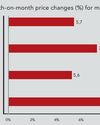
Good rains boost SA's summer grain crop prospects
This week, Absa AgriBusiness analyses several market dynamics and shares its expectations for local grain and oilseed prices over the coming months.
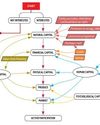
A self-help tool for getting young people engaged in agriculture
The active engagement of the youth in agriculture is pivotal to the sustainability and growth of the sector. Empowering them with the necessary support is key to nurturing future farmers who are equipped to overcome future challenges like the effects of climate change.Dr Primrose Madende, researcher at the Department of Agricultural Economics at the University of the Free State
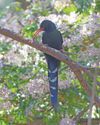
Rallying to the cackle of this raucous bird
The gregarious and territorial Green Wood-hoopoe, also known as the Red-billed Wood-hoopoe, is extremely vocal and is often heard before it is seen. And for very good reason,

SA coffee lovers can expect price increase
South African coffee prices are expected to spike sharply in the foreseeable future because of failed crops in the country’s main importing countries: Brazil and Vietnam.
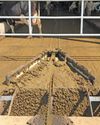
Paving the way for a greener dairy industry
The dairy industry is often criticised for its environmental impact, but a new innovation called DESTiny aims to empower farmers to take control of their carbon footprints. Riana Reinecke, the tool's developer, explained to Glenneis Kriel how it works and how farmers can benefit from it.